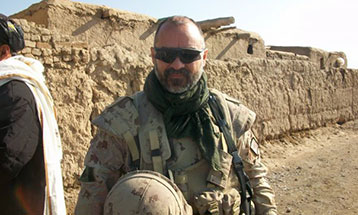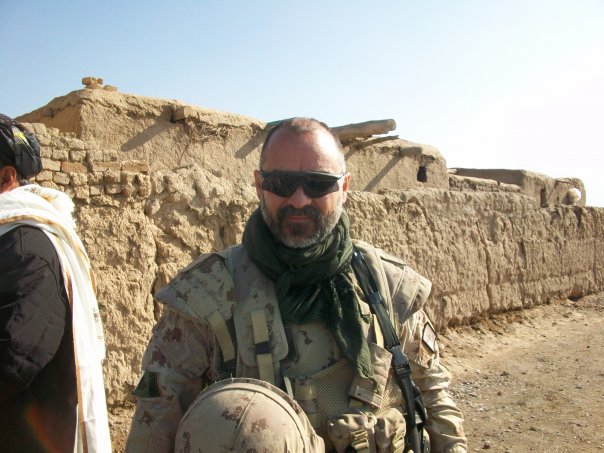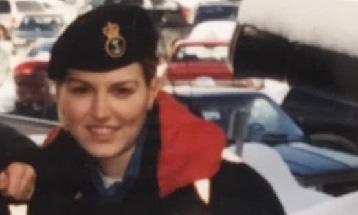The greatest challenge for a Canadian Armed Forces (CAF) member transitioning to life after service is social adaptation, says Lieutenant-Colonel (Retired) Bruno Plourde.
“We leave a culture where service before self is instilled every day. We accomplish the mission as a team. Then when we leave the CAF, we find ourselves in a society where the notion of ‘we’ hardly exists. Individual success is more valued than team success. Not feeling a sense of mutual support becomes a challenge in itself.”
After four decades as a reservist, including three overseas deployments, Bruno released from service in 2020. He went on to play a key role in developing Le Sentier/The Trail, a non-profit organization that offers personalized support and services for Veterans in transition.
With that experience, Bruno has valuable advice for others approaching transition or currently in life after service.
Service
Bruno Plourde was born and grew up in Lévis, Quebec. In 1980 at the age of 16, he joined the CAF as a conventional reservist—or as he puts it, “as a citizen soldier.” This allowed him to attend school while serving on evenings and weekends.
In 1989, Bruno was offered a full-time contract, and served as a full-time reservist until the end of his career in the military.
In September 2001, Bruno deployed to Bosnia, where his role was to liaise between Bosnia-Herzegovina’s armed forces and NATO stabilization forces. “In Bosnia, I lived in a village, not on a Canadian base. So I had the chance to live day-by-day among the people we were going to help. If I wanted supper, I did what everyone else did and went grocery shopping, not to the military camp kitchen to eat. This created a certain closeness with people and a feeling of mutual respect with the local population.”
From 2004 to 2005, he was deployed to the United Nations Organization Mission in the Democratic Republic of the Congo. As chief of staff of Sector 2 in the eastern part of the country, he supported the UN’s military operations.
Bruno served in Afghanistan from 2008 to 2009, where he mentored the Afghan National Police in the southern part of the country.
After returning to Canada in 2009, he was commanding officer of the Royal Highland Regiment, also called the Black Watch, until 2013. For the next four years, he commanded the 2 Canadian Ranger Patrol Group. He then returned to command the Black Watch until he retired in 2020. “My body could no longer keep up,” he says with a smile. He still keeps in touch with international military personnel with whom he has worked over the years.
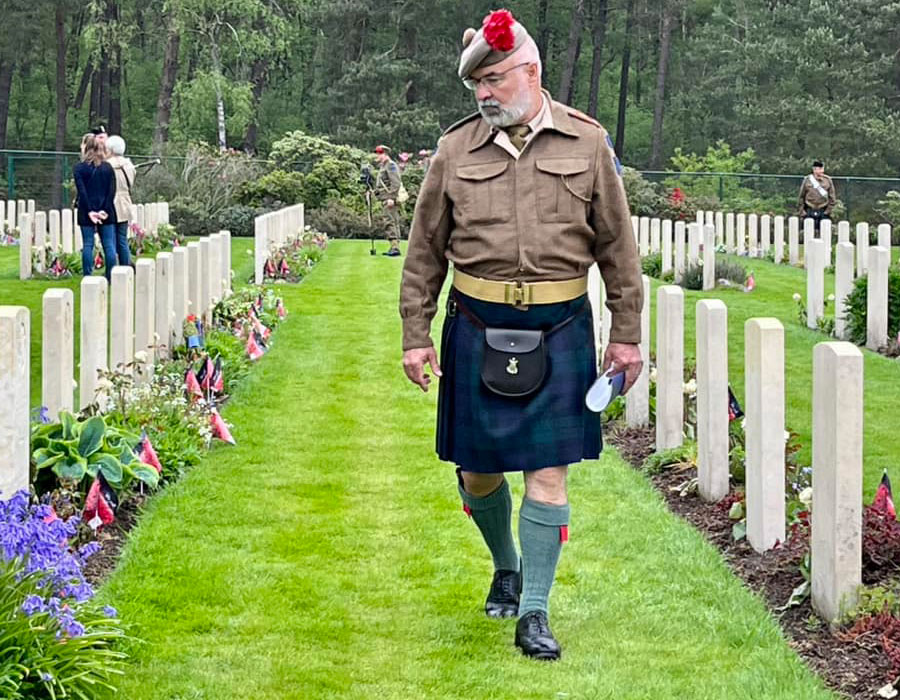
Transition challenges
Upon release, Bruno was recruited to work at Maison Bieler, an organization that provided affordable, permanent housing for Veterans of the Second World War and Korean War. There, he noted the limitations of transition services offered to Veterans.
“We prepare people for a lot of things, but we don’t necessarily prepare them for the right things. We talk a lot about process, but we don’t talk much about healthcare, finding housing or civilian employment, or the actual accessibility to the resources to find solutions.
“On the base, soldiers can see a doctor at any time, but when they leave the Army, it's different. In Quebec, for example, you can wait five years to get a doctor.”
In 2018, he met the founder of the Respect program, Steve Gregory. He joined Mr. Gregory, community workers, volunteers, and front-line coordinators, in what became Le Sentier/The Trail in 2019. This organization, Plourde says, offers more personalized support and services for Veterans.
With three locations in Montreal and one in Quebec City, the organization’s qualified social workers and volunteers help Veterans identify their needs, find tools and resources, and deal with Veterans Affairs Canada and other agencies. They help complete forms, manage budgets, and even get referrals to mental health and other resources. “Together we help Veterans put the pieces together. We encourage them to be the architect of their own success.”
Known for his white beard and funny T-shirts (he hates jackets and ties), Bruno says that there’s a trust that automatically builds up when people have been in the Army. “When a Veteran approaches to chat and realizes that the other person is also a Veteran, there is less mistrust.”
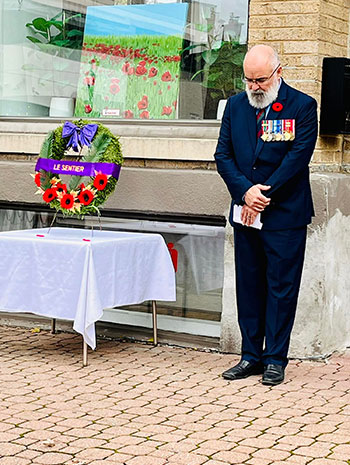
In 2023, Bruno married his partner of 11 years, former military nurse Chantal Ménard; the two first met some 30 years ago. They have four grown sons, one currently serving in the CAF.
At the end of 2023, Bruno retired as Director General of Le Sentier/The Trail. He continues to help the Veteran community as a volunteer. Bruno says he doesn't see himself doing anything else at the moment; he sees himself as an ambassador for his fellow Veterans and will continue to be present on the ground.
He has many fond memories. Many involve “working with motivated and dedicated soldiers, sharing with them a smile or a satisfied nod because we succeed in doing something bigger than ourselves, or helping civilians improve their livelihoods. These moments were the greatest gift I had in my career.”
Tips for transition
“Take time to come to grips with the environment in which you will be operating. Have the humility to listen to the people who want to help you. You can decide later what you want to do,” Bruno advises. Nothing happens by itself. “The greatest lesson is not to assume, but to prepare.”
He adds a message to the communities: “Thank you for all the comforting words, gifts and recognition, but please also take the time to talk to and welcome the Veterans who come to your community. The best way to say thank you is to welcome us into our ‘new’ communities. The government offers services and care, but it’s also up to us to bring a human dimension to that inclusion.”
Mr. Plourde wants it known that it was thanks to Mr. Gregory of Respect Canada that contact for this interview was done.
Respect Canada receives financial support from the Veteran and Family Well-Being Fund.
If you or someone you know is transitioning to life after service, check our website for services related to mental and physical health, finances, education or jobs and housing and home life. We also provide services to families and caregivers who support our Veterans.
